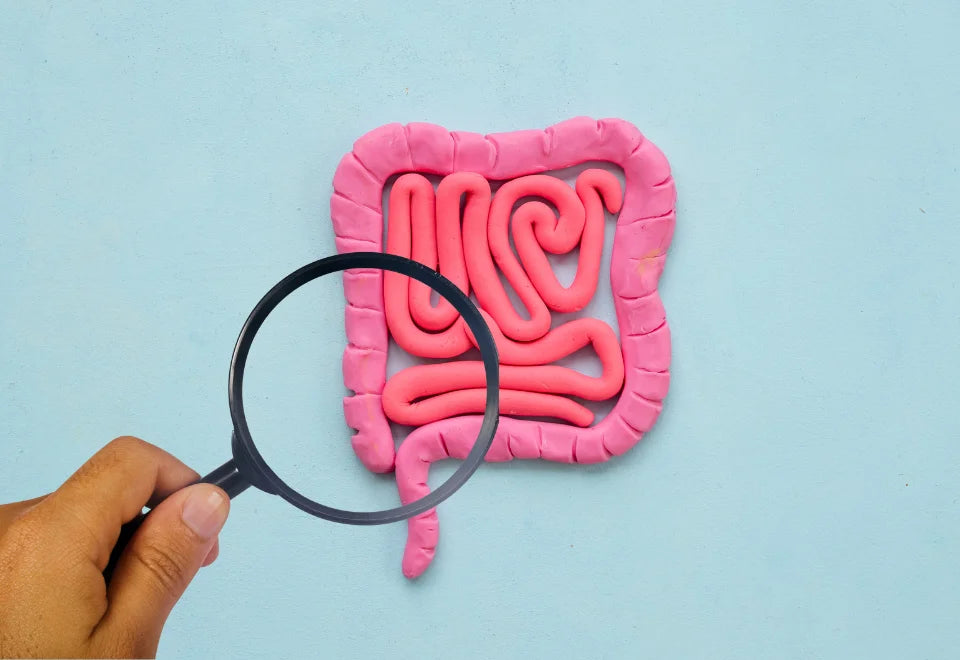Your gut is home to many trillions of microorganisms, collectively known as the gut microbiome – a complex ecosystem that plays its part in myriad aspects of how your body operates and ultimately contributes to overall health. This diverse community of bacteria, viruses, and fungi aids in many functions such as digestion, immunity, heart health and brain function among others in addition to the role it plays against type 1 diabetes (Wiertsema et al.,2021). Microbiome testing can help you understand your gut microbiome better leading to a healthy life and prevent digestive problems.
What is Meant by Personalised Gut Health Testing?
Personalised gut health testing gives you a clear picture of the microorganisms living in your gut that play a big role in your health. By providing a simple stool sample, you can learn more about your gut bacteria and how they’re connected to your overall well-being.
Microbiome Testing Benefits: Why Should You Care?
The microbiome test provides a detailed analysis of the gut’s microbial community, helping understand the unique makeup of the microbiome and its implications on health.
It measures the efficiency of macronutrient breakdown — proteins, fats and carbohydrates — by gut bacteria to help guide you towards improved digestive health.
The microbiome test identifies the functional capabilities of gut microbes, affecting immune function and overall well-being. Research links diverse gut microbiomes to stronger immunity and better health (Valdes et al., 2018).
Based on your gut health scores from microbiome testing, you’ll receive tailored food recommendations designed to support beneficial microbes.
The Ease of At-Home Personalised Gut Health Testing with Decode Biome
The microbiome test offers a simple, convenient, at-home personalised gut health testing that allows you to obtain in-depth information about your gut health without the need for clinic visits. Here’s how it works:
- Collecting the stool sample.
- Register your kit online for proper identification.
- Returning the sample to the lab.
- Advanced metagenomic techniques are used to analyse your gut microbiome.
- A detailed report with personalised recommendations is available in about four weeks.
Decode Biome is the very first and only gut microbiome test in India, using a cutting-edge approach to change the domain of nutrition and wellness by making tailored health recommendations accessible to everyone.
Biome Testing: The Future of Health Diagnostics
Biome testing is becoming more and more integrated into the future of health diagnostics, enabling personalisation of healthcare by providing a deeper understanding of each patient's health profile and facilitating more targeted and efficient interventions. It has the power to analyse enormous volumes of data and pinpoint distinct microbial signatures, which will completely change the way we think about disease prevention and health management (Bajwa et al., 2021). With every new finding that links the microbiome to a host of diseases, the prospects for biome-based diagnostics to transform healthcare are increasingly bright.
Conclusion
Personalised gut health testing, including at-home gut health tests, has improved our understanding of unique microbiomes more than ever. Advances in gut microbiome testing are revolutionising healthcare by providing tailored insights that connect diet, lifestyle, and health. Decode Biome goes beyond being just a test-it’s your pathway to better health. Why hesitate? Begin your journey into gut health today and adopt a more personalised approach to your wellness path.
FAQs
Why is gut health important to our well-being?
Keeping the gut healthy is quite essential because it will carry out its function of digesting and absorbing foods, so the body acquires all the nutrients from the digested foods. It also helps the immune system, regulates hormonal responses, and affects serotonin levels necessary for overall health.
Can my gut microbiome affect personalised treatment plans?
The microbiome has become so important in personalised medicine because of the unique perspective it offers on the health of a person. Moreover, through the mapping of each patient's gut microbiome, the healthcare expert is able to provide certain specific, tailored interventions, including tailored diets and probiotics to fix particular microbial imbalances. That approach fits treatments to an individual's microbial profile and should enhance drug efficacy with a reduction of side effects, hence bringing about better disease prevention and management. With microbiome information, personalised medicine is so much better informed, whereby diagnosis can be more accurate and health managed more proactively.
Why does gut health matter for mental health?
The gut-brain axis is a mutual channel of communication between the gut and the brain; therefore, gut health is important regarding mental health. A normal gut microbiome contributes to the regulation of hormones and neurotransmitters that influence mood and cognitive performance. It is also conceivable that the discrepancy in gut bacteria may cause inflammation and an alteration in neurotransmitter levels, which could give rise to mental problems such as depression and anxiety. Hence, maintaining a healthy gut microbiome has a positive effect on mood, cognitive functions, and emotional health overall.
What does a healthy digestive system indicate?
The healthy gut indicators include routine bowel movements, no diarrhoea or constipation, minor gas and bloating, and being mentally sharp because mood is affected by gut microbiota. A balanced gut microbiome is an immunity health indicator; hence, few instances of falling sick relate to good digestion with no chronic pain and acne-free skin. On the whole, these pointers relate to good health of the gut and digestive system.
Can microbiome testing help improve your digestive health?
A microbiome test is a diagnostic analysis that investigates microbial flora in your gut. A sample taken at home from the stool is sent to and analysed by the laboratory to see the presence of various bacteria, viruses, fungi, and other microorganisms. Their unbalanced amounts can contribute to poor conditions of your immune system, digestion, mood, and health in general. With personalised gut health testing, therefore, you will be able to get further insights into your gut microbiota and recommended actions that will help you toward improved health. Benefits accruing from microbiome testing are increasingly recognized in personalised approaches to health as part of diagnostics in the future.
What does gut microbiome testing involve?
During gut microbiome testing, a sample of stool is taken, and after advanced techniques of metagenomic, different microorganisms present in it are known. The result depicts how your gut microbes influence the different aspects of health, such as metabolism, immunity, and digestion.




























Leave a comment
All comments are moderated before being published.
This site is protected by hCaptcha and the hCaptcha Privacy Policy and Terms of Service apply.